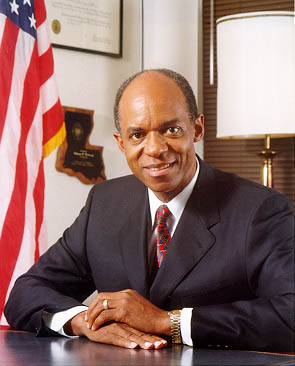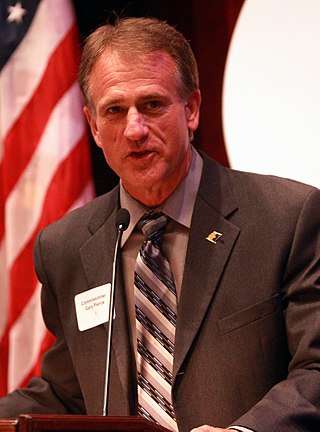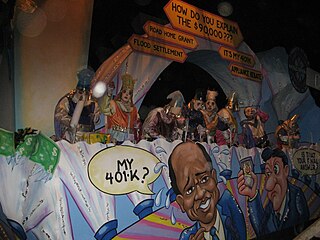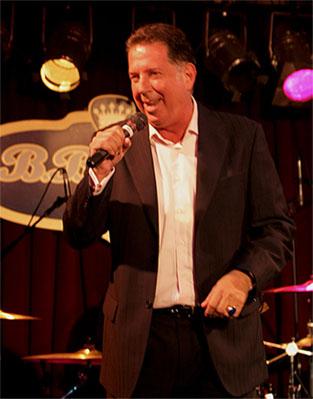
The Racketeer Influenced and Corrupt Organizations (RICO) Act is a United States federal law that provides for extended criminal penalties and a civil cause of action for acts performed as part of an ongoing criminal organization.
Murder, Inc. was an organized crime group active from 1929 to 1941 that acted as the enforcement arm of the National Crime Syndicate – a closely connected criminal organization that included the Italian-American Mafia, the Jewish Mob, and other criminal organizations in New York City and elsewhere. Murder, Inc. was composed of Jewish and Italian-American gangsters, and members were mainly recruited from poor and working-class Jewish and Italian neighborhoods in Manhattan and Brooklyn. It was initially headed by Louis "Lepke" Buchalter and later by Albert "Mad Hatter" Anastasia.

Siemens AG is a German multinational technology conglomerate. Its operations encompass automation and digitalization in the process and manufacturing industries, intelligent infrastructure for buildings and distributed energy systems, rail transport solutions, as well as health technology and digital healthcare services. Siemens is the largest industrial manufacturing company in Europe, and holds the position of global market leader in industrial automation and industrial software.
A voting machine is a machine used to record votes in an election without paper. The first voting machines were mechanical but it is increasingly more common to use electronic voting machines. Traditionally, a voting machine has been defined by its mechanism, and whether the system tallies votes at each voting location, or centrally. Voting machines should not be confused with tabulating machines, which count votes done by paper ballot.

William Jennings Jefferson is an American former politician from Louisiana whose career ended after his corruption scandal and conviction. He served as a member of the U.S. House of Representatives for nine terms from 1991 to 2009 as a member of the Democratic Party. He represented Louisiana's 2nd congressional district, which includes much of the greater New Orleans area. He was elected as the state's first black congressman since the end of Reconstruction.

Robert Menendez is an American lawyer and politician serving as the senior United States senator from New Jersey, a seat he has held since 2006. A member of the Democratic Party, he was first appointed to the U.S. Senate by Governor Jon Corzine, and chaired the United States Senate Committee on Foreign Relations from 2013 to 2015, and again from 2021 to 2023.

The Foreign Corrupt Practices Act of 1977 (FCPA) is a United States federal law that prohibits U.S. citizens and entities from bribing foreign government officials to benefit their business interests.
A DRE voting machine, or direct-recording electronic voting machine, records votes by means of a ballot display provided with mechanical or electro-optical components that can be activated by the voter. These are typically buttons or a touchscreen; and they process data using a computer program to record voting data and ballot images in memory components. After the election, it produces a tabulation of the voting data stored in a removable memory component and as printed copy. The system may also provide a means for transmitting individual ballots or vote totals to a central location for consolidating and reporting results from precincts at the central location. The device started to be massively used in 1996 in Brazil where 100% of the elections voting system is carried out using machines.
Sequoia Voting Systems was a California-based company that is one of the largest providers of electronic voting systems in the U.S., having offices in Oakland, Denver and New York City. Some of its major competitors were Premier Election Solutions and Election Systems & Software.
Arnold Ezekiel "Squiggy" Squitieri was an American former acting boss and underboss of the Gambino crime family. He is also known as "Zeke", "Bozey", and "Squitty".

Gary L. Pierce is a former Arizona Corporation Commissioner and a former member of the Arizona House of Representatives.

The corruption case against then Louisiana Representative William J. Jefferson in the United States started on a suspicion of bribery. The FBI raided his Congressional offices in May 2006. He was re-elected to his seat in the fall. On June 4, 2007, a federal grand jury indicted Jefferson on sixteen charges related to corruption. Jefferson was defeated by Republican Joseph Cao on December 6, 2008, and was the most senior Democratic incumbent to lose re-election that year. In 2009 he was tried in the US District Court in Virginia on corruption charges. On August 5, 2009, he was found guilty of 11 of the 16 corruption counts. Jefferson was sentenced to 13 years on November 13, 2009 - the longest sentence ever given to a representative for bribery or any charge.
Gilbert R. Baker is an American politician and member of the Republican Party who represented District 30 in the Arkansas State Senate for District 30 from 2001 to 2013.

Yank Barry is a Canadian businessman and musician. He is the founder and CEO of VitaPro Foods, a company that makes textured vegetable protein for use as a meat substitute and an apple pectin product called ProPectin, and is the founder of the Global Village Champions Foundation. He is a musician, songwriter, and music producer who had a stint as the lead singer of the garage rock band The Kingsmen in the 1960s.

East Mississippi Correctional Facility is a men's prison located in unincorporated Lauderdale County, Mississippi, near Meridian. It is about 90 miles east of the capital, Jackson. Opened in 1999, the special needs prison is intended to provide a high level of care for up to 1500 prisoners with serious mental illness, at all custody levels.
In 2010, New York State became the last U.S. state to switch to electronic voting under the Help America Vote Act. In doing so, New York abandoned its Shoup lever machines which had been used since 1962 and were originally built by American Voting Machines Company in Jamestown, New York.
Christopher B. Epps is a Federal inmate and a former commissioner of the Mississippi Department of Corrections (MDOC) and career employee in the state criminal justice system though he started his career as a teacher. Appointed as Commissioner in 2002 and serving until 2014, he served under three governors and was the agency's longest-serving commissioner in its history. Epps came up within the department as a 32-year career employee.
Operation Mississippi Hustle was a federal investigation initiated in 2014 by the United States Attorney and prosecuted in the United States District Court for the Southern District of Mississippi. It examined the relationship between officials of the Mississippi Department of Corrections and various for-profit prison contractors and subcontractors, who have provided services to the five private prisons in the state. One, Walnut Grove, closed in September 2016 but has since reopened.
Cecil McCrory is a former Mississippi state legislator, justice court judge, Rankin County school board president and businessman. His indictment was made public in November 2014 for corruption related to his dealings with prison industry contractors. It was later revealed that he had become an informant in the investigation, along with his partner in crime, ex-Commissioner of Corrections in Mississippi, Chris Epps. Epps was sentenced to 235 months and McCrory to 102 months in federal prison. Both men were fined and ordered to pay restitution. McCrory is being held at the Federal Correctional Institution, Talladega, Alabama, with a scheduled release date of April 24, 2025.
Crawford Hugh "Sammy" Downs was an American politician. He served as a Democratic member of the Louisiana House of Representatives. Downs also served as a member of the Louisiana State Senate.








